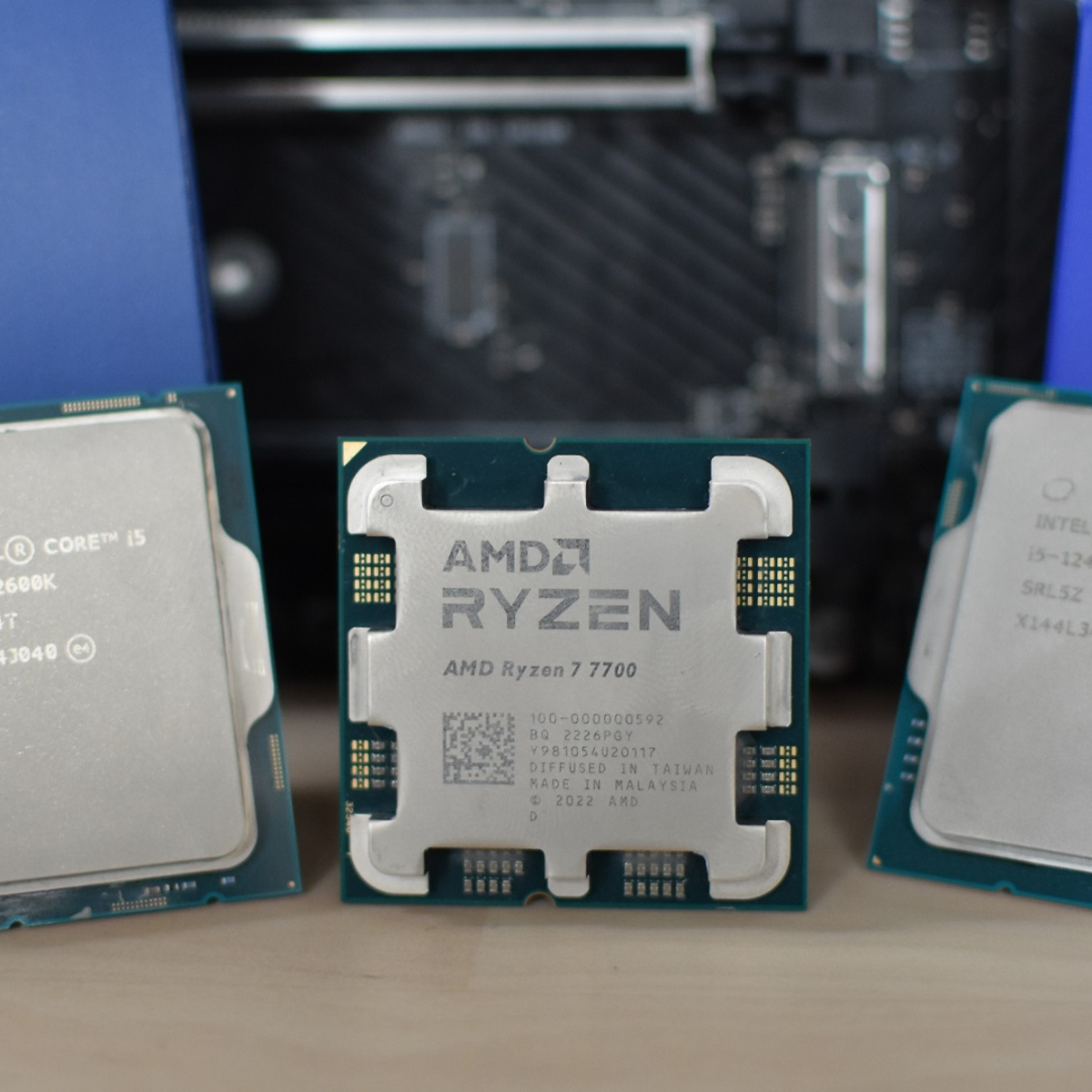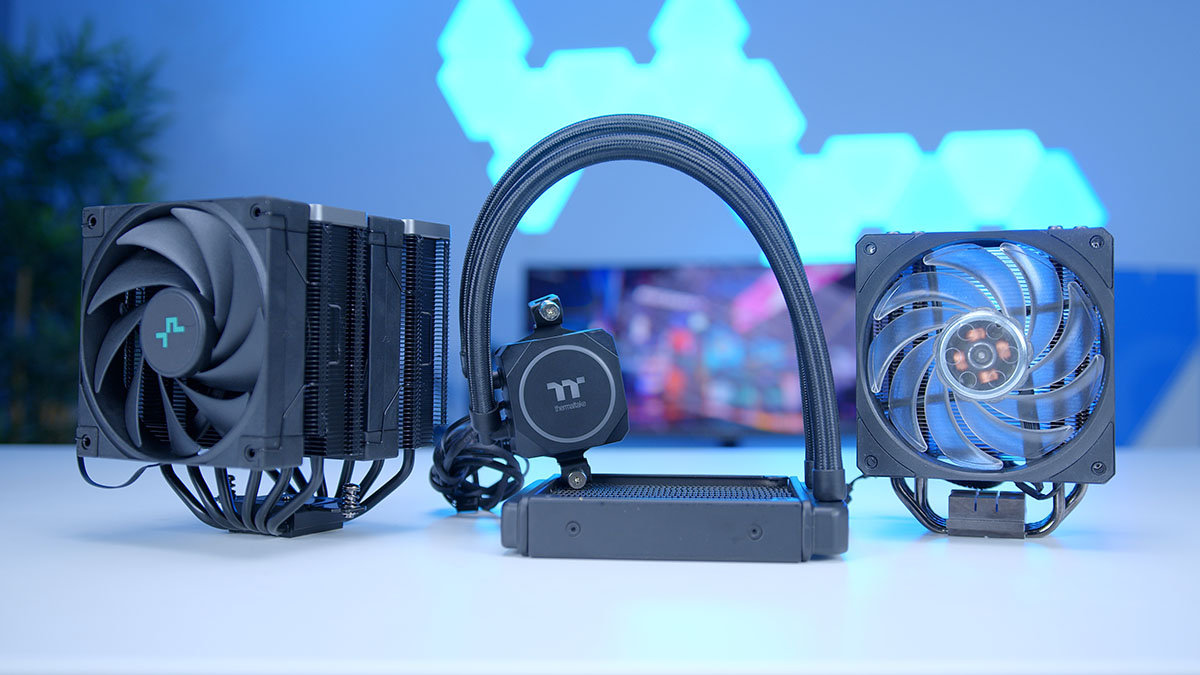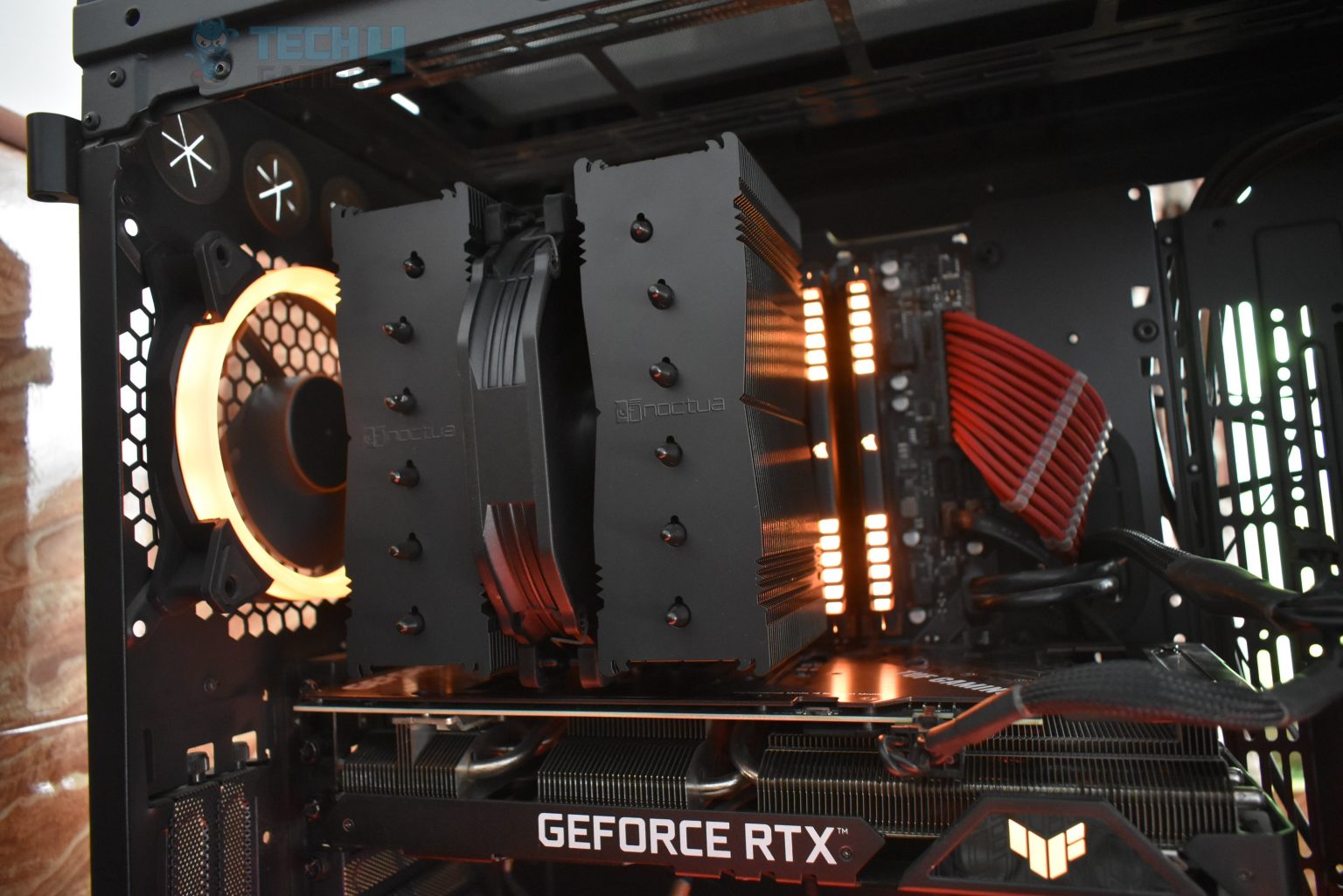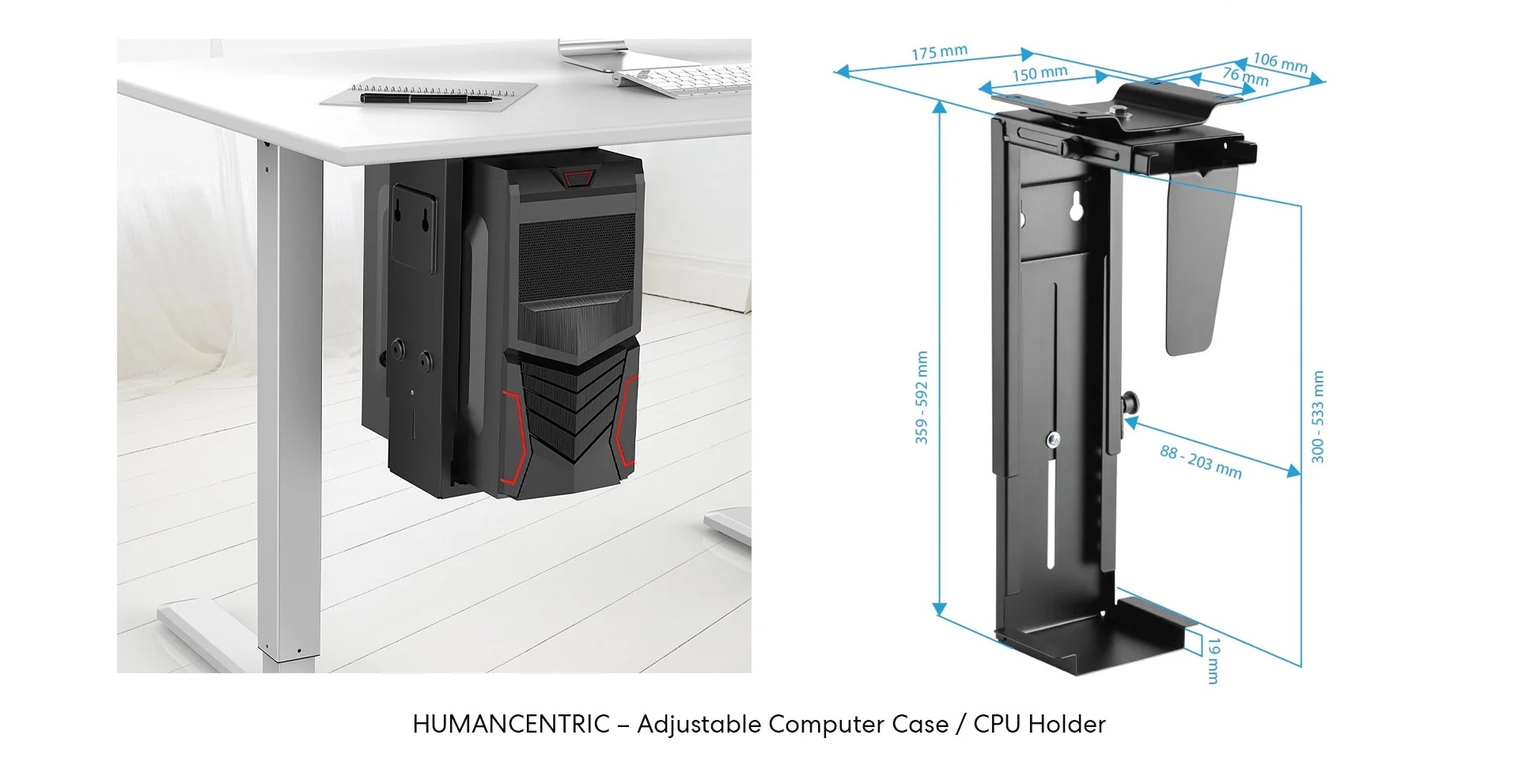Introduction
When it comes to gaming, having a powerful and efficient system is crucial for an immersive and smooth gaming experience. While most people focus on graphics cards and RAM, one vital component that often gets overlooked is the central processing unit, or CPU. Despite its small size, the CPU plays a pivotal role in gaming performance.
A CPU, also known as the brain of the computer, is responsible for executing instructions and performing calculations that power the games we play. It functions as the bridge between the hardware and software, ensuring that the game runs smoothly by processing data and controlling various tasks.
In this article, we will delve into the importance of a CPU in gaming and how it influences overall gaming performance. We will explore the technical aspects of a CPU, the specifications to consider for gaming, and how to optimize it for maximum gaming potential.
Whether you’re a casual gamer or a hardcore enthusiast, understanding the role and significance of a CPU in gaming will help you make informed decisions when it comes to choosing the right hardware to elevate your gaming experience.
What is a CPU?
The central processing unit, or CPU, is the primary component of a computer system that performs the majority of processing tasks. It is often referred to as the “brain” of the computer as it controls and executes instructions, calculations, and operations necessary for the functioning of various software programs, including games.
The CPU consists of multiple cores, with each core capable of handling instructions independently. These cores work together to process data and perform tasks at incredible speeds, allowing for efficient multitasking and high-performance computing.
Inside the CPU, there are millions, if not billions, of tiny electronic components, including transistors and logic gates, that manipulate and process the data. These components work together in a complex manner, interpreting and executing instructions given by software programs.
One of the key factors that determine the performance of a CPU is its clock speed, measured in gigahertz (GHz). Clock speed represents the number of cycles the CPU can execute per second. Generally, a higher clock speed indicates faster processing capabilities, resulting in quicker response times and smoother gameplay.
Another crucial aspect of a CPU is the cache memory. It provides quick access to frequently used data, reducing the time needed for the CPU to retrieve information from the computer’s main memory. CPUs with larger cache sizes can provide a performance boost, especially in gaming scenarios where rapid retrieval of data is essential.
It is important to note that CPUs come in multiple architectures, such as Intel’s x86 and AMD’s Ryzen, each with its own strengths and weaknesses. Gamers should consider factors like the architecture, performance, power consumption, and compatibility when selecting a CPU that best suits their gaming needs.
Overall, a CPU is a critical component in any gaming system, as it handles the majority of computational tasks required to run games effectively. By understanding the basic principles of a CPU and its role in gaming, gamers can make informed decisions when upgrading or building their gaming rigs to ensure optimal performance and enjoyable gaming experiences.
Importance of a CPU in Gaming
When it comes to gaming, the CPU is a crucial component that can significantly impact the overall gaming experience. While the graphics card often takes center stage in discussions about gaming performance, the CPU plays an equally important role. Here are some reasons why the CPU is vital for smooth and immersive gaming:
1. Game Physics and AI: A CPU is responsible for running the complex calculations required for game physics and artificial intelligence. It handles tasks like simulating realistic environments, calculating collision detection, and controlling non-playable characters (NPCs) and enemies. A powerful CPU ensures more accurate physics simulations and intelligent behaviors in games, leading to enhanced realism and engaging gameplay.
2. Game Logic and Scripting: The CPU executes the game’s logic and scripting that define the rules, gameplay mechanics, and interactions. It handles tasks like tracking player input, managing game states, and executing scripted events. A fast CPU ensures quick and efficient execution of these tasks, resulting in seamless gameplay and responsive controls.
3. Multitasking and Background Tasks: Gaming often involves running multiple tasks simultaneously, such as streaming, recording gameplay, and voice chat. A powerful CPU with multiple cores allows for efficient multitasking, ensuring that background tasks do not hinder gaming performance. It enables gamers to effortlessly stream their gameplay, record high-quality videos, and communicate with teammates while playing, without impacting the game’s performance.
4. Game Loading and Level Transitions: The CPU plays a significant role in loading game files and transitioning between different levels or areas. A fast CPU with ample cache memory reduces loading times, minimizing waiting periods and ensuring smoother transitions between game sections. Gamers can enjoy seamless gameplay without lengthy interruptions, enhancing the overall gaming experience.
5. Future-Proofing: Investing in a powerful CPU ensures that your gaming system can handle future game releases and technologies. Games are becoming more demanding, both in terms of graphics and CPU requirements. By having a high-performance CPU, you can future-proof your gaming rig and enjoy gaming at its best for a longer period before needing to upgrade.
6. Compatibility with Graphics Cards: The CPU and graphics card work hand in hand to deliver smooth and visually stunning gaming experiences. A balanced system with a powerful CPU ensures that the graphics card isn’t bottlenecked by an underperforming CPU. By choosing a CPU that complements your graphics card, you can maximize its potential and achieve optimal gaming performance.
Overall, the CPU’s importance in gaming cannot be overstated. It directly influences factors like game physics, AI, multitasking capabilities, loading times, and future-proofing. A well-chosen CPU can significantly enhance the gaming experience, enabling gamers to enjoy immersive and seamless gameplay with stunning visuals and responsive controls.
How Does a CPU Work in Gaming?
At its core, a CPU works by executing a series of instructions to carry out various tasks in a computer system, including gaming. Let’s explore how a CPU functions specifically in the context of gaming:
Fetch: The CPU retrieves instructions and data from the computer’s memory, where the game code and assets are stored. These instructions are fetched in sequential order, known as the program counter, and loaded into the CPU’s internal cache for quick access.
Decode: Once the instructions are fetched, the CPU decodes them into a format that it can understand. It breaks down complex instructions into elementary operations that the CPU can execute.
Execute: The CPU performs the necessary calculations, computations, and operations based on the decoded instructions. In gaming, this includes tasks like rendering graphics, simulating physics, managing artificial intelligence, and executing game logic.
Memory Access: The CPU accesses the computer’s memory to retrieve and store data required for the execution of game-related tasks. This includes accessing textures, models, sound files, and other game assets from the memory.
Control: The CPU manages and coordinates the flow of instructions and data between various components of the system, ensuring that they work harmoniously to execute the game. It controls the timing of operations, synchronizes tasks, and manages interrupts, allowing for smooth and uninterrupted gaming.
In gaming, the CPU’s speed, cache size, and number of cores play vital roles in determining the overall performance. Higher clock speeds allow for faster execution of instructions, resulting in quicker processing times and improved frame rates. Larger cache sizes help in storing frequently accessed data, reducing memory latency and ensuring quicker retrieval of game assets.
Multi-threaded games and modern game engines make use of multiple CPU cores to distribute workload and improve performance. This allows game tasks, such as physics computations and AI calculations, to be processed simultaneously on different cores, resulting in smoother gameplay and better responsiveness.
It’s worth noting that the CPU collaborates with other components, such as the graphics card (GPU) and system memory (RAM), to deliver a seamless gaming experience. The CPU sends instructions and data to the GPU, which handles the rendering of game graphics, while the system memory provides temporary storage for game assets and data.
Overall, the CPU acts as the central processing unit in a gaming system, executing instructions, performing calculations, and controlling various game-related tasks. Its speed, cache size, and core count are critical factors that determine gaming performance, ensuring smooth gameplay, responsive controls, and immersive experiences.
CPU Specifications to Consider for Gaming
When choosing a CPU for gaming, there are several important specifications to consider. These specifications directly impact the performance and capabilities of the CPU in running games smoothly. Here are the key CPU specifications to keep in mind:
1. Clock Speed: Clock speed, measured in gigahertz (GHz), refers to the number of cycles a CPU can execute per second. A higher clock speed generally results in faster processing and better gaming performance. However, it’s important to note that clock speed alone doesn’t determine overall performance, as other factors like architecture and core count also play a role.
2. Cores and Threads: CPUs can have multiple cores, with each core capable of independently executing instructions. Having more cores helps with multitasking and improves overall performance, especially in games that can utilize multiple cores. Additionally, CPUs with support for multithreading technology can handle even more simultaneous tasks, further enhancing gaming performance.
3. Cache Size: Cache memory is a small, high-speed memory located on the CPU chip. It stores frequently accessed data, allowing for faster retrieval and reducing latency. CPUs with larger cache sizes tend to perform better in gaming scenarios, as they can quickly access frequently used game data and instructions.
4. Architecture: Different CPU architectures, such as Intel’s x86 or AMD’s Ryzen, offer varying performance and features. It’s important to consider the specific architecture and model of a CPU, as certain games may be optimized for one architecture over another. Researching compatibility and performance benchmarks for gaming can help guide your decision.
5. Power Consumption: The power consumption of a CPU affects the overall system’s heat output and energy efficiency. When building a gaming PC, it’s important to select a CPU that strikes a balance between performance and power consumption, ensuring that your system remains cool and energy-efficient during intense gaming sessions.
6. Compatibility: Ensure that the CPU you choose is compatible with your motherboard socket. Different CPUs use different socket designs, so it’s crucial to verify compatibility before making a purchase. Additionally, consider the compatibility with other components, such as RAM and graphics cards, to ensure a well-matched system that can deliver optimal gaming performance.
7. Price: Price is undoubtedly a significant consideration when choosing a CPU for gaming. It’s important to evaluate your budget and strike a balance between performance and cost. While the latest and most powerful CPUs may offer top-tier performance, there are often more budget-friendly options available that can still provide a satisfactory gaming experience.
By carefully considering these CPU specifications, you can select a CPU that meets your gaming requirements and offers a balance of price and performance. It’s important to conduct thorough research, read reviews, and compare benchmarks to make an informed decision that will deliver a smooth, immersive, and enjoyable gaming experience.
Overclocking the CPU for Gaming
Overclocking is the practice of pushing a CPU beyond its default clock speed to achieve higher performance. While not without risks, overclocking can provide a significant boost in gaming performance for those looking to squeeze extra power out of their CPUs. Here’s what you need to know about overclocking for gaming:
1. Understanding the Risks: Overclocking increases the heat output and power consumption of the CPU, which can potentially lead to stability issues, system crashes, and even damage to your hardware. It’s crucial to research and understand the risks involved before attempting to overclock your CPU.
2. Cooling Considerations: Overclocking generates more heat, so it’s essential to have adequate cooling solutions in place to maintain safe operating temperatures. Investing in a high-quality CPU cooler, such as an aftermarket air cooler or liquid cooling system, can help dissipate the extra heat generated during overclocking.
3. Incremental Approach: Overclocking should be done gradually and incrementally. Start by increasing the CPU clock speed or voltage in small increments, then test for stability and monitor temperatures. You can use software utilities, such as CPU stress tests and temperature monitoring tools, to ensure stability and keep an eye on temperatures during testing.
4. Finding the Sweet Spot: Overclocking aims to find the balance between increased performance and manageable temperatures. Pushing the CPU beyond its limits may yield higher clock speeds, but if temperatures become too high, it can result in throttling or instability. Experiment with different settings to find the optimal balance for your specific CPU and cooling setup.
5. BIOS Settings and Tools: Overclocking is typically done in the computer’s BIOS, where you can adjust specific settings related to CPU speed, voltage, and power limits. Different motherboards have different BIOS interfaces, so familiarize yourself with your motherboard’s BIOS and the available overclocking options. Additionally, there are software tools available that can simplify the overclocking process and provide real-time monitoring of temperatures and clock speeds.
6. Stability Testing: After applying overclocking settings, it’s important to thoroughly test the system’s stability. Run stress tests, such as Prime95 or AIDA64, for an extended period to ensure that the CPU can handle the increased clock speeds without crashing or generating excessive heat. It’s also important to test the stability of your system under heavy gaming loads to ensure consistent performance.
7. Warranty Considerations: Overclocking your CPU may void the manufacturer’s warranty, as it involves operating the CPU outside the recommended specifications. Be sure to check the warranty terms before attempting to overclock and understand the potential consequences in case of hardware failure or damage.
Overclocking can provide a noticeable performance boost for gaming, allowing your CPU to handle demanding games with higher frame rates and smoother gameplay. However, it requires careful planning, adequate cooling, and an understanding of the associated risks. With proper precautions and testing, you can safely and successfully overclock your CPU to extract additional gaming performance.
CPU Cooling for Gaming
Proper CPU cooling is essential for maintaining optimal performance and longevity, especially during intensive gaming sessions. Excessive heat can lead to thermal throttling, reduced performance, and even permanent damage to your CPU. Here are some key considerations for CPU cooling in gaming:
1. Air Cooling: Air cooling is the most common and budget-friendly cooling solution for CPUs. It typically involves a heatsink and fan combination. The heatsink draws heat away from the CPU, while the fan helps dissipate the heat into the surrounding air. When choosing an air cooler, consider factors such as the size of the cooler, the number and size of the heat pipes, and the fan’s airflow and noise level.
2. Liquid Cooling: Liquid cooling or “all-in-one” (AIO) cooling systems offer more efficient cooling for CPUs. They consist of a liquid-filled loop that absorbs heat from the CPU block and carries it to a radiator, where the heat is dissipated by fans. Liquid cooling systems provide better heat dissipation and can handle higher overclocks, but they are more expensive and require proper installation and maintenance.
3. Thermal Paste: Applying high-quality thermal paste between the CPU and the heatsink is crucial for efficient heat transfer. It fills in microscopic gaps and ensures optimal contact between the CPU and the cooler. When applying thermal paste, use a small amount to avoid excessive drips or spills that can create a mess or affect cooling performance negatively.
4. Proper Case Airflow: Ensuring good airflow within your PC case is essential for effective CPU cooling. Proper cable management, strategically placed case fans, and clear pathways for air circulation help prevent heat from building up around the CPU. Consider installing intake fans at the front of the case and exhaust fans at the rear or top to create a balanced airflow pattern.
5. Fan Placement and Orientation: Proper fan placement and orientation can significantly impact CPU cooling. The CPU cooler’s fan should be positioned to direct airflow towards the heatsink for optimal cooling efficiency. Additionally, ensure that your case fans are set up to provide sufficient airflow to the CPU and the surrounding components.
6. Dust Management: Dust accumulation on fans, heatsinks, and other components can hinder airflow and increase temperatures. Regularly clean your PC to remove dust using compressed air or a soft brush. This helps maintain optimal cooling performance and extends the lifespan of your CPU and other hardware.
7. Monitoring and Adjusting: Utilize software utilities to monitor the CPU temperature during gaming sessions. This allows you to keep an eye on any temperature spikes and make necessary adjustments if needed, such as increasing fan speeds or adjusting overclocking settings. Keeping temperatures in check ensures stable performance and protects the longevity of your CPU.
8. Custom Loop Cooling: For enthusiasts, custom loop cooling allows for more customization and superior cooling performance. Custom loops involve individually selecting water blocks, tubing, reservoirs, and other components to build a custom cooling loop. This advanced cooling solution requires more maintenance and investment but offers exceptional cooling capabilities for demanding gaming setups.
Ensuring proper CPU cooling is crucial for maintaining optimal gaming performance and extending the lifespan of your CPU. Whether you opt for air cooling, liquid cooling, or a custom loop, choosing a reliable cooling solution and implementing good airflow management will help keep temperatures in check during intense gaming sessions.
Conclusion
The CPU is a vital component for gaming, playing a crucial role in delivering smooth and immersive experiences. It handles tasks ranging from physics calculations to AI simulations, ensuring games run flawlessly. When selecting a CPU for gaming, important factors to consider include clock speed, number of cores, cache size, architecture, power consumption, compatibility, and price.
Overclocking the CPU can bring a significant performance boost for gaming, but it requires careful considerations and adequate cooling solutions to prevent overheating and instability. Air cooling and liquid cooling (AIO) systems are commonly used for CPU cooling, with each having its advantages and considerations. Proper case airflow, fan placement, thermal paste application, and regular dust management are also crucial for optimal CPU cooling.
By understanding the importance of the CPU, its specifications for gaming, and the various cooling options available, gamers can make informed decisions when building or upgrading their gaming rigs. A well-chosen CPU, coupled with effective cooling, has the potential to unleash the full capabilities of games, enabling smooth gameplay, responsive controls, and immersive visuals.
Ultimately, investing in a powerful CPU and ensuring proper cooling ensures that your gaming system can handle the demands of today’s games and future releases. So, take the time to research and choose wisely, as the CPU’s performance will significantly impact your overall gaming experience.

























